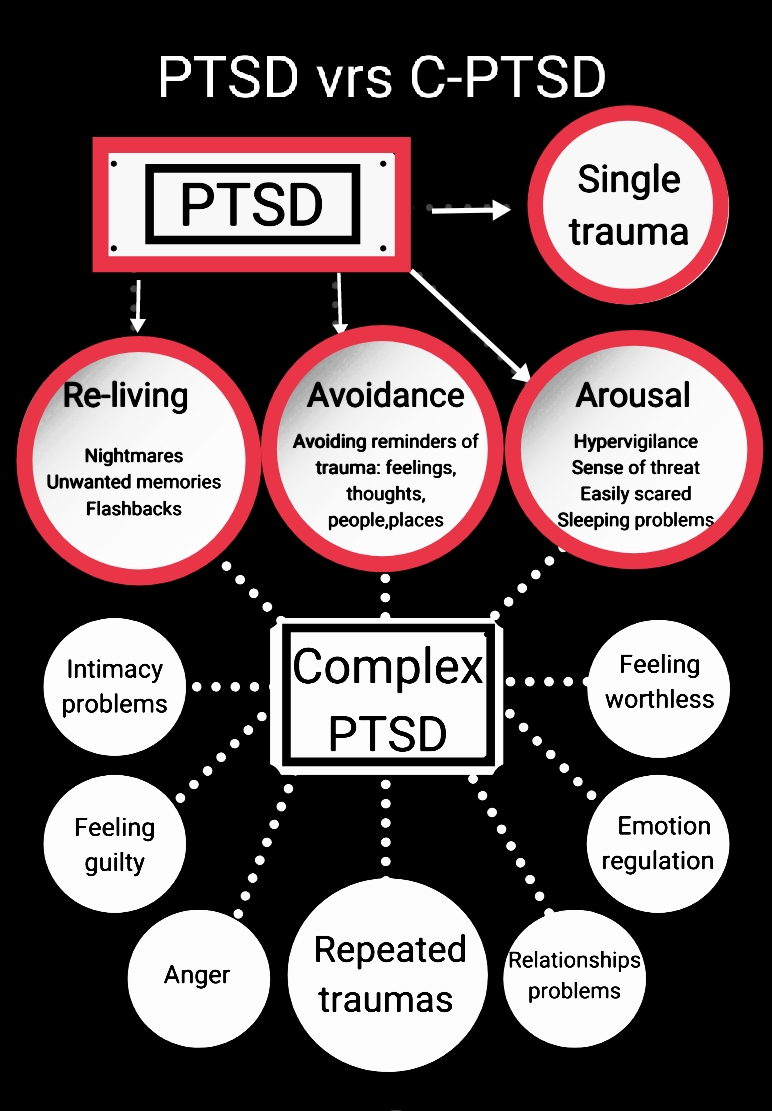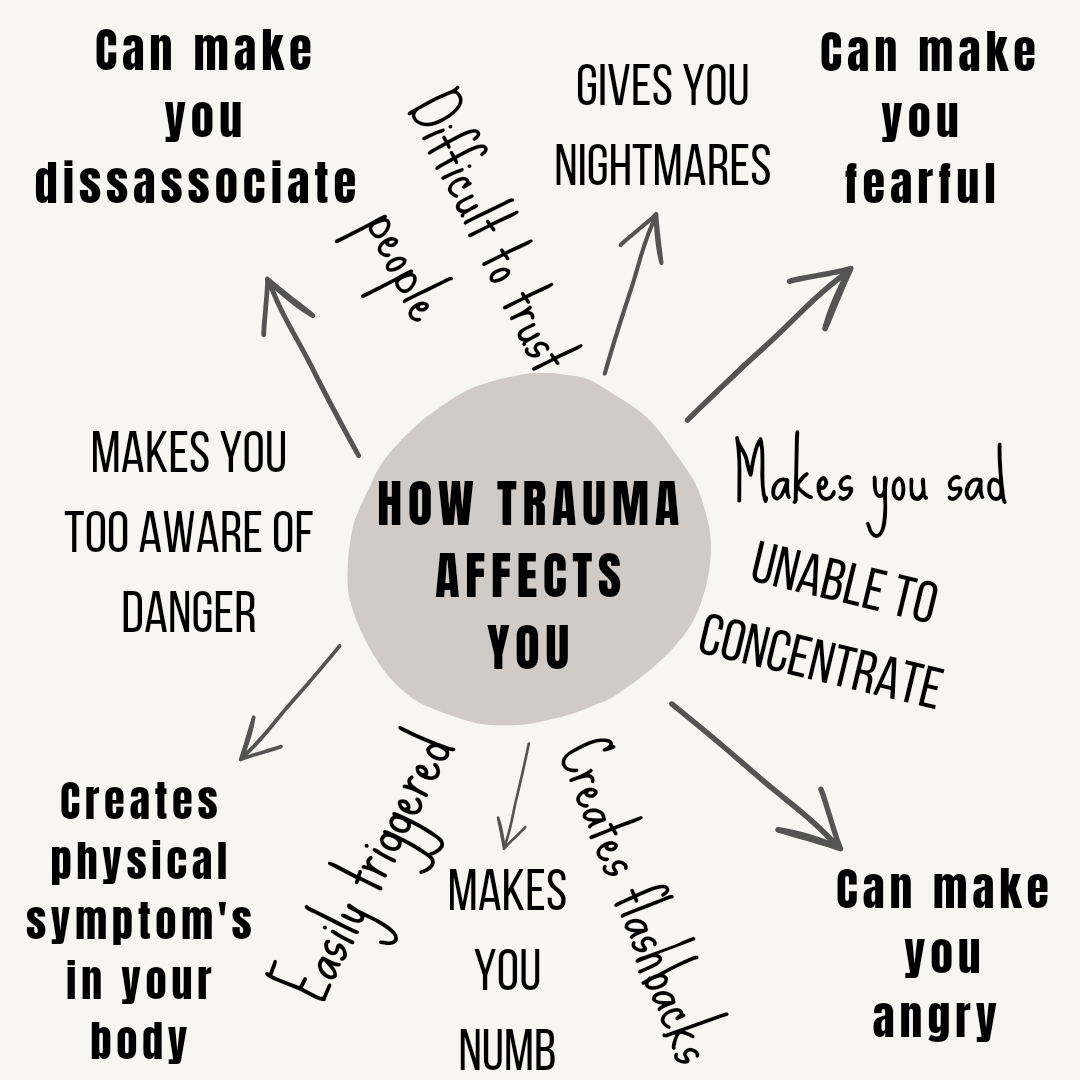Do You Have Trauma?
Contrary to popular belief “Trauma isn’t what happens to you, it is what happens inside you.” Trauma Specialist, Dr Gabor Maté quotes. Trauma can have a profound impact on the brain, including how people perceive the world, respond to their circumstances, and make decisions.
Please listen to the below videos to gain a greater understanding of what trauma is, and how you can begin to heal from it.
Trauma And The Nervous System
Adverse Childhood Experiences (ACEs) Explained
How Trauma Impacts The Body
Understanding Trauma
Listening To Your Bodies Wisdom
Navigating Medical Trauma
12 Signs You Might Have CPTSD
The Quick Fix Mindset
The Different Types Of Trauma
SMALL t-TRAUMA
This type of trauma encompasses experiences that may seem less severe on the surface, though may still leave lasting effects. Examples of small t trauma’s include emotional neglect, chronic stress, or recurring microaggressions.
BIG T-TRAUMA
This phrase refers to significant incidents that have an immediate and profound impact on a person’s well-being,
they may or may not cause Post Traumatic Stress Disorder. These events could involve violence, abuse, or life-threatening situations.
POST TRAUMATIC STRESS DISORDER (PTSD):
Typically arises from one specific traumatic incident or a series of closely related incidents.
COMPLEX POST TRAUMATIC STRESS DISORDER (C-PTSD):
This results from ongoing, repeated, and complex traumas that may occur over months or years. These may be severe health issues, medical trauma, ongoing childhood trauma, being bullied at school or work repeatedly. Being powerless for extended periods of time are usually part of the experience.
Symptoms:
PTSD:
Common symptoms include intrusive thoughts, nightmares, flashbacks, hyperarousal (feeling on edge), avoidance of triggers, and emotional numbing.
C-PTSD:
In addition to the symptoms of PTSD, C-PTSD may include difficulties in emotional regulation, disturbances in self-identity, difficulties in forming relationships, and a sense of hopelessness. A person’s health can be negatively impacted due to the ongoing stress from C-PTSD.

How Trauma Affects You

Trauma Reduction Journalling

Click HERE to download the PDF of the above image.
Download an example journal entry HERE
Compassionate Meditation by Nicole
Emotional And Physical Health Benefits Of Expressive Writing
(supportive scientific literature)
There is a body of research that suggests expressive writing such as Journalling can indeed help improve emotional pain/stress relief. Studies like those conducted by Pennebaker and Smyth have shown that writing about emotions and traumatic experiences can lead to emotional and psychological benefits.
See below for supporting scientific papers from: Cambridge University Press
https://www.cambridge.org/core/journals/advances-in-psychiatric-treatment/article/emotional-and-physical-health-benefits-of-expressive-writing/ED2976A61F5DE56B46F07A1CE9EA9F9F
Below is a summary of the long term benefits of expressive writing as observed in the scientific studies.
HEALTH OUTCOMES
•Fewer stress-related visits to the doctor
•Improved immune system functioning
•Reduced blood pressure
•Improved lung function
•Improved liver function
•Fewer days in hospital
•Improved mood/affect
•Feeling of greater psychological well-being
•Reduced depressive symptoms before examinations
•Fewer post-traumatic intrusion and avoidance symptoms
SOCIAL AND BEHAVIOURAL OUTCOMES
•Reduced absenteeism from work
•Quicker re-employment after job loss
•Improved working memory
•Improved sporting performance
•Higher students’ grade point average
•Altered social and linguistic behaviour
Audio Journalling – A New Approach
(Created by Nicole – 2023)

In the hustle and bustle of our daily lives, it’s easy to forget to lend an attentive ear to the one person who truly knows us inside out, ourselves. Amidst the chatter of external voices, there exists a wonderful tool that can help us reconnect with our inner selves, allowing us to become our own best friend, this is called Somatic Audio Journalling.
Unlike traditional journalling, it captures the subtleties of your voice, tone, pauses, and unspoken feelings. When we take the time to listen back to our audio entries, a profound magic can unfold. It’s as if we are extending a compassionate hand to our own selves, offering a safe space to be heard, felt, and understood. Through this act of active listening, we create a nurturing bond with our inner selves, transcending the barriers of self-doubt and self-judgement. The warmth and sincerity in our own voice becomes a mirror, reflecting back the depth of our emotions and the richness of our experiences.
Additionally, it incorporates self soothing, body based therapies that aid further with stress processing. It does this by changing your brain wave state from a fast Gamma brain wave, to a slow Delta brain wave. Thus promoting a sense of peace, and emotional integration. Take this transformative journey by recording your thoughts, and in doing so, unveil the empathetic friend within – waiting to be heard, felt, and understood.
For more information about this type of journalling – please visit our Cutting Edge Audio Journalling page
